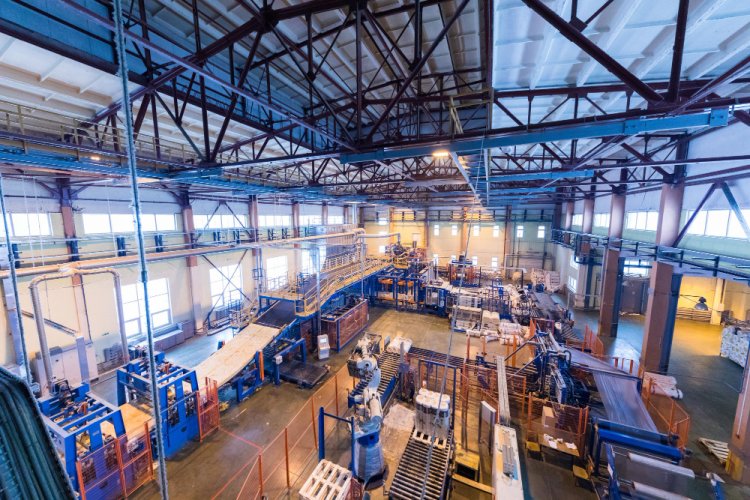Introduction
In the digital age, the convergence of manufacturing and IT services has revolutionized the industrial landscape. As businesses strive for greater efficiency, flexibility, and competitiveness, integrating advanced IT services into manufacturing processes has become not just advantageous but essential. This article explores the pivotal role of IT services in modern manufacturing, examining key trends, benefits, challenges, and future prospects.
Understanding Manufacturing IT Services
Manufacturing IT services encompass a wide array of technologies and solutions tailored to enhance various facets of manufacturing operations. These services range from enterprise resource planning (ERP) systems and supply chain management (SCM) software to advanced analytics, Internet of Things (IoT) integration, and cybersecurity measures. The primary objective is to streamline processes, optimize production, improve decision-making, and ultimately, drive profitability.
Key Benefits of Manufacturing IT Services
-
Operational Efficiency: IT services automate routine tasks, optimize workflows, and reduce operational costs by minimizing waste and downtime.
-
Enhanced Decision-Making: Real-time data analytics enable manufacturers to make informed decisions promptly, improving responsiveness and agility.
-
Quality Control: Advanced monitoring and predictive analytics tools help maintain product quality standards consistently.
-
Supply Chain Integration: IT services facilitate seamless coordination across the supply chain, ensuring timely delivery and inventory management.
Trends Shaping Manufacturing IT Services
-
Industry 4.0: The fourth industrial revolution emphasizes the integration of IoT, cloud computing, and AI to create "smart factories" capable of autonomous production and predictive maintenance.
-
Digital Twins: Virtual replicas of physical assets enable manufacturers to simulate scenarios, optimize processes, and predict maintenance needs accurately.
-
Blockchain Technology: Enhances transparency, traceability, and security across supply chains, reducing fraud and ensuring product authenticity.
-
AI and Machine Learning: These technologies optimize production schedules, predict demand fluctuations, and enhance quality control through anomaly detection.
Challenges in Implementing Manufacturing IT Services
-
Integration Complexity: Legacy systems and disparate IT infrastructures may pose challenges during implementation and integration.
-
Cybersecurity Risks: Connected devices and data exchange increase vulnerability to cyber threats, necessitating robust security measures.
-
Skill Shortages: Demand for IT professionals with specialized knowledge in manufacturing processes often exceeds supply, hindering seamless adoption.
-
Cost Considerations: Initial investment in IT infrastructure and ongoing maintenance costs can be substantial, requiring careful financial planning.
Case Studies: Successful Implementation of IT Services in Manufacturing
-
Automotive Industry: Adoption of IoT-enabled sensors and AI-driven analytics has optimized production efficiency and reduced downtime.
-
Consumer Electronics: Integration of digital twins has enhanced product design processes, leading to faster time-to-market and improved customer satisfaction.
-
Pharmaceuticals: Blockchain technology has been pivotal in ensuring regulatory compliance, product traceability, and supply chain transparency.
Future Outlook and Opportunities
The future of manufacturing IT services is poised for significant advancements driven by emerging technologies such as 5G connectivity, edge computing, and augmented reality (AR). These innovations promise to further enhance operational efficiency, accelerate innovation cycles, and facilitate remote collaboration.
Conclusion
In conclusion, the marriage of manufacturing and IT services represents a transformative journey towards more agile, efficient, and customer-centric operations. While challenges exist, the benefits of embracing IT services in manufacturing are undeniable, offering unparalleled opportunities for growth and competitive advantage in the global marketplace.
References
- Deloitte Insights - "Industry 4.0 and Manufacturing Ecosystems"
- McKinsey & Company - "Digital Manufacturing: The Revolution Will Be Virtualized"
- Harvard Business Review - "How Blockchain Will Transform the Supply Chain and Logistics Industry"
This article has explored the pivotal role of IT services in modern manufacturing, highlighting key trends, benefits, challenges, and future prospects. As industries continue to evolve, leveraging advanced IT solutions will remain crucial in driving sustainable growth and innovation.


 deanjennyjohn
deanjennyjohn 




